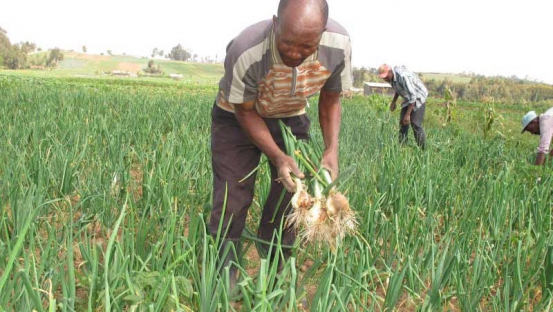×
The Standard e-Paper
Smart Minds Choose Us

Patrick Mburu in one of his segmented farm that grows onions located in Munyu area in Naivasha and Nakuru County. (Photo: Nanjinia Wamuswa/Standard)
Crop farming in an area with little rainfall is tricky for most farmers.